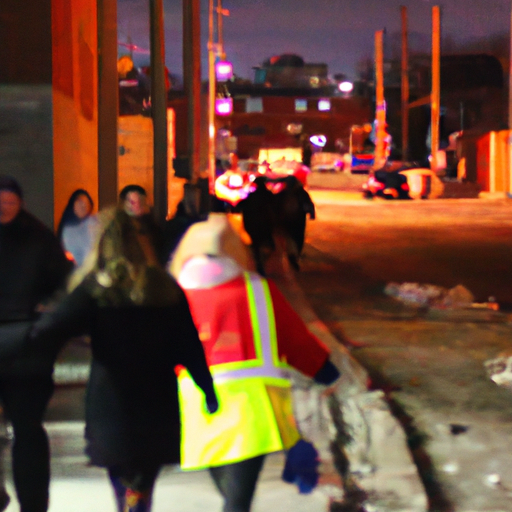The Opioid Crisis in Canada: An Examination of Belleville’s Drug Emergency
This blog post seeks to discuss the escalating opioid crisis in Canada with a focus on Belleville, a community that represents the wider tragedy tearing through the country’s families and cities. Drawing insights from a recent National Post article, we reflect on the adverse effects of this crisis and the actions taken to combat it.
Belleville: A Microcosm of the Canadian Opioid Crisis
Belleville, a small city of about 50,000 residents, is being ravaged by an opioid crisis. Emergency services in the city had to deal with an unprecedented number of opioid-related incidents in November 2021, evidencing the extent of the opioid problem. Belleville’s struggle is a testament to what many Canadian communities contend with.
The Human Cost of Belleville’s Opioid Problem
The harsh reality of the opioid crisis is the devastating human cost it exacts. Families are being torn apart, with children losing parents to the opioid epidemic and mothers having to deal with the pain of losing children. It’s a violent cycle that perpetuates poverty and homelessness, raising questions about the larger societal issues at play.
Blurred Lines: Housing and Opioid Crisis
Belleville’s opioid problem has revealed a strong correlation between lack of housing and substance abuse. The link between the opioid crisis and housing security highlights the need to address issues of housing affordability and quality in Canada. Many of the individuals battling addiction in Belleville are also dealing with homelessness, a situation that has worsened due to the pandemic’s impact on the local economy.
A Collective Response to the Opioid Crisis
Addressing the opioid crisis requires collective action at all levels – local, provincial, and national. Several policies and initiatives have been put into place to combat the opioid crisis. At the pharmacological level, there has been a renewed focus on the distribution of naloxone, a medication designed to rapidly reverse opioid overdose. Numerous organizations and healthcare providers across the country are also focusing on raising opioid awareness and education to prevent misuse of these powerful drugs. However, the current measures seem insufficient considering the escalating problem.
Opioid Class Action: A Legal Tool for Accountability and Remedy
On a broader level, a Canadian opioid abatement class action has been pursued, seeking justice and accountability. The government of Quebec has launched one of the biggest class-action lawsuits in Canada against opioid manufacturers. This legal approach aims to compensate for the costs of treating opioid-related health issues and criticizes companies for their alleged misleading marketing practices. The results of these actions could set a precedent for subsequent legal battles against companies involved in the opioid industry.
Key Points
We have discussed various aspects related to Belleville’s ongoing opioid crisis. Here is a summary of the key points:
- Belleville represents a snapshot of the broader opioid crisis in Canada, where communities are primarily affected.
- There is a saddening human cost associated with opioid abuse, often leading to family crises and homelessness.
- There is a strong link between the opioid crisis and housing stability, with many struggling with both issues simultaneously.
- Action at local, provincial, and national levels is crucial – ranging from enhanced naloxone distribution to public education initiatives.
- A widespread Canadian opioid abatement class action has been initiated against opioid manufacturers, seeking both accountability and compensation.
In conclusion, the opioid crisis in Canada, as illustrated by Belleville’s struggles, is alarming. It requires comprehensive interventions that go beyond healthcare provision to address the social determinants of health such as housing security. As civil and community leaders, promoting policies and initiatives while holding corporations accountable through legal avenues like the Canadian opioid abatement class action could be a step in the right direction. Ultimately, immediate actions are crucial in protecting citizens, preventing crime, reducing homelessness, and creating a healthier, safer Canada in the future.
